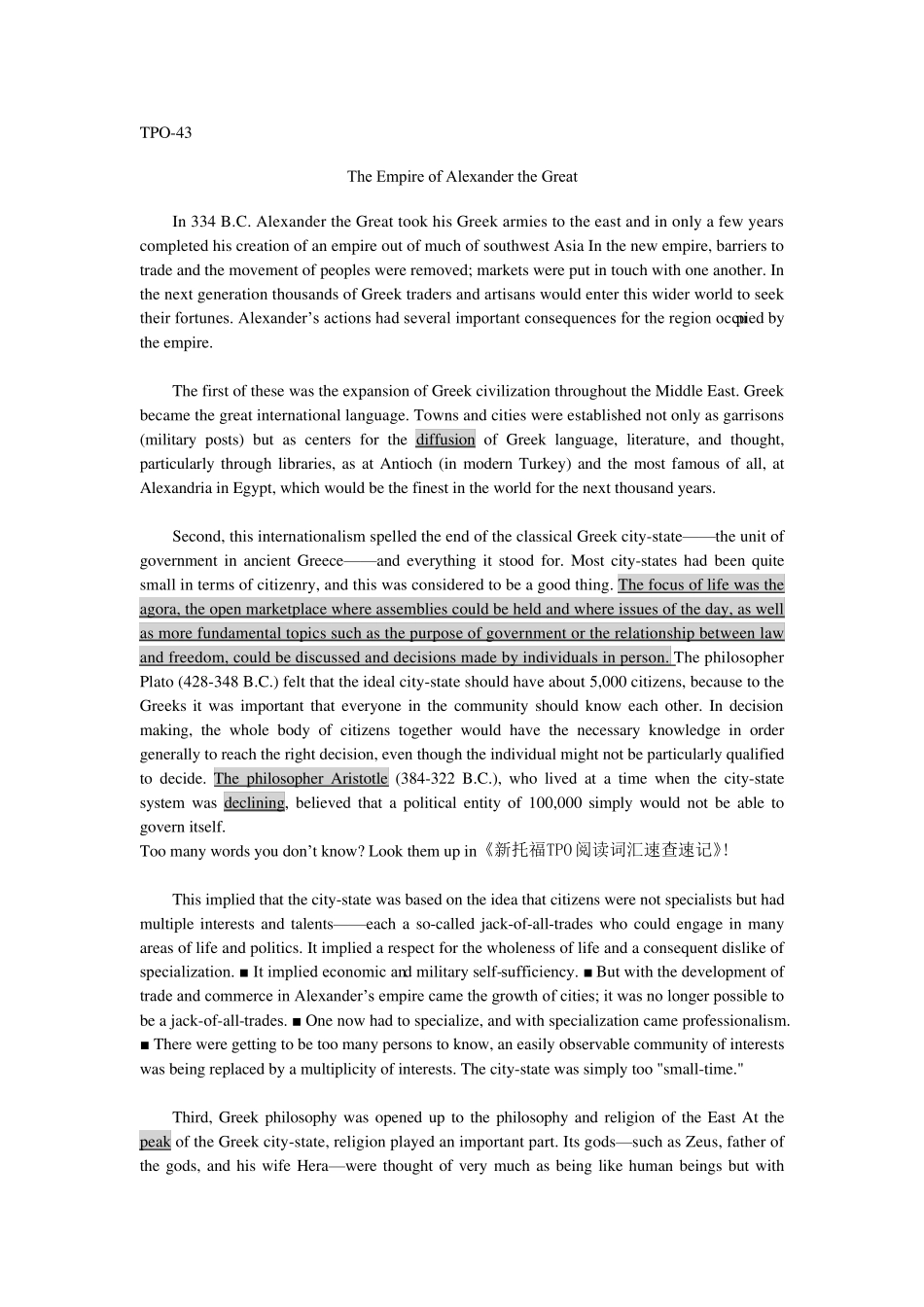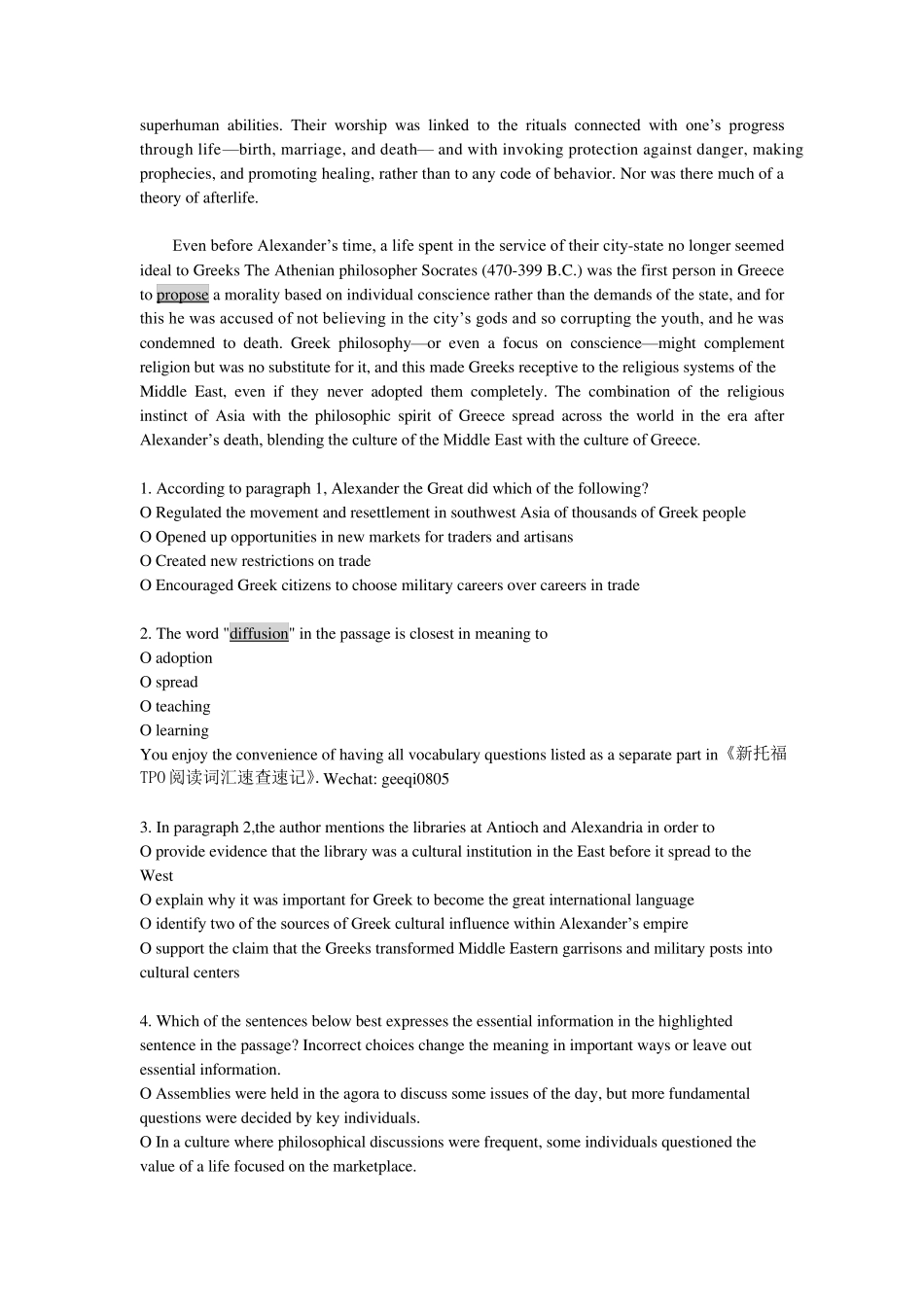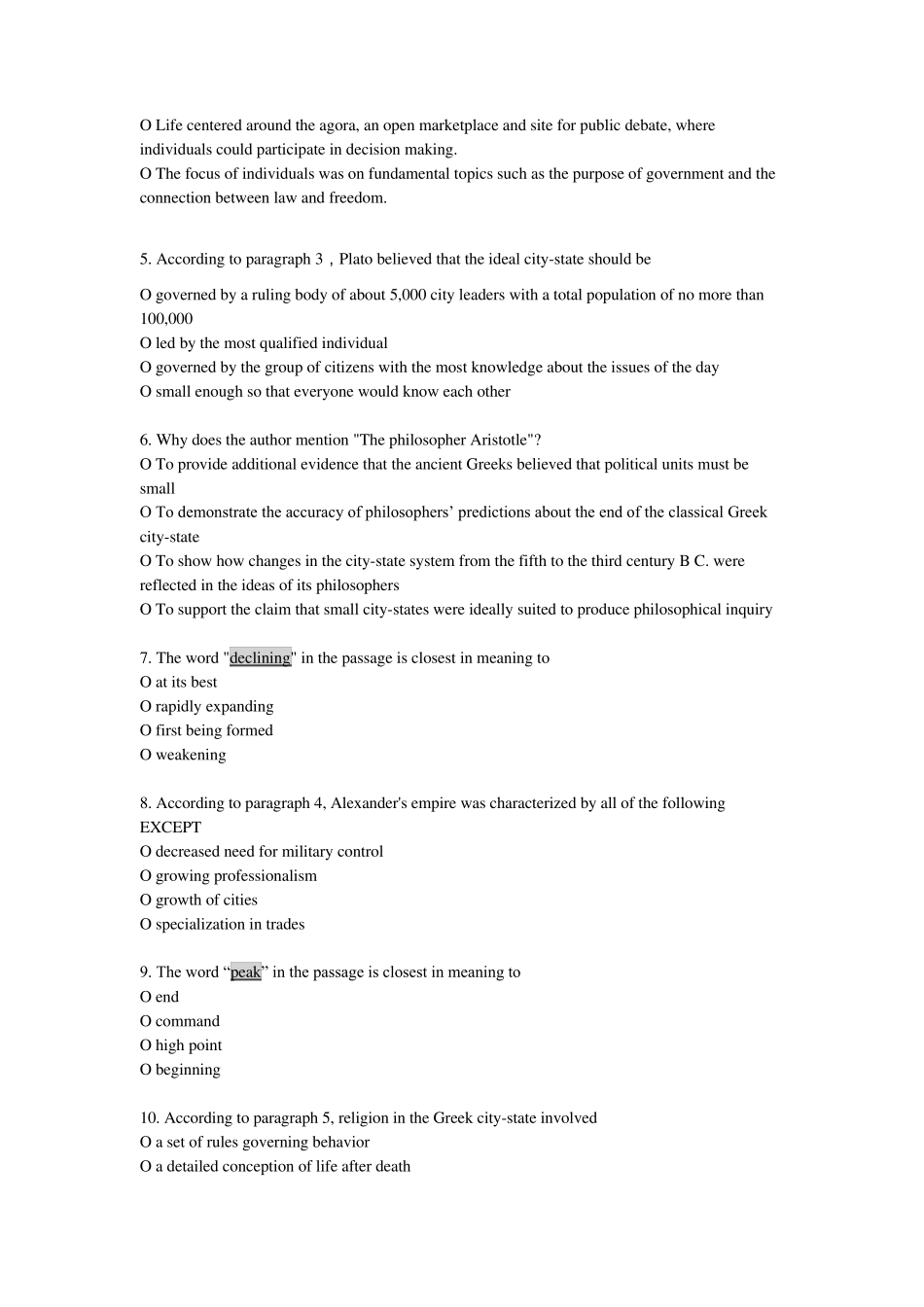TPO-43 The Empire of Alexander the Great In 334 B.C. Alexander the Great took his Greek armies to the east and in only a few years completed his creation of an empire out of much of southwest Asia In the new empire, barriers to trade and the movement of peoples were removed; markets were put in touch with one another. In the next generation thousands of Greek traders and artisans would enter this wider world to seek their fortunes. Alexander’s actions had several important consequences for the region occupied by the empire. The first of these was the expansion of Greek civilization throughout the Middle East. Greek became the great international language. Towns and cities were established not only as garrisons (military posts) but as centers for the diffusion of Greek language, literature, and thought, particularly through libraries, as at Antioch (in modern Turkey) and the most famous of all, at Alexandria in Egypt, which would be the finest in the world for the next thousand years. Second, this internationalism spelled the end of the classical Greek city-state——the unit of government in ancient Greece——and everything it stood for. Most city-states had been quite small in terms of citizenry, and this was considered to be a good thing. The focus of life was the agora, the open marketplace where assemblies could be held and where issues of the day, as well as more fundamental topics such as the purpose of government or the relationship between law and freedom, could be discussed and decisions made by individuals in person. The philosopher Plato (428-348 B.C.) felt that the ideal city-state should have about 5,000 citizens, because to the Greeks it was important that everyone in the...


